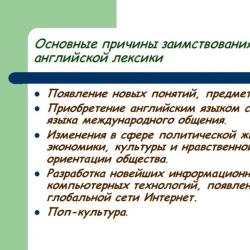And I'm like, or like is more than just an English verb
Many students have English verb like turns into the most disliked word, since it is not always clear what should be used after it - the ending -ing or just the infinitive. We will try to understand this abra-kadabra with the help of some explanations and examples.
How to use the English verb like?
Generally English verb like can be seen in the list verbs, which must be followed by a gerund (that is, the ending –ing). Let's look at a few examples.
1. We like speaking English. We love to speak English.
2. Do you like sleeping in the afternoon?- Do you like sleeping during the day?
3. Anna likes watching telly. Anna likes to watch TV.
4. Bob and Kevin like doing sport. Bob and Kevin love to play sports.
5. The children like playing football.- Children like to play football.
In modern English it can be found as like doing, so "like to do". In most cases, the value will be the same. The difference is almost impossible to notice. Let's consider two examples.
I like to clean my room.
I like cleaning my room.
If you pay attention only to the general meaning of the sentences, then it will be the same. In both the first and second cases, the person says that he likes to clean his room. But if you dig deeper, you'll find that like to clean indicates that a person regularly cleans his room and likes it. Concerning like cleaning, here attention is paid not to regularity, but to the relation to action. The person likes the cleaning process itself, the frequency is not taken into account. A person simply expresses his attitude to this action.

English verb like in questions and negatives
Let's see how it behaves English verb like in interrogative and negative sentences. Like any other word denoting action, like needs helpers.
Examples:
1. Do they like walking in this park? Do they like walking in this park?
3. Do the boys like to do their homework? Do boys like doing homework?
4. Did she like to play chess at school? Did she like playing chess at school?
5. My brother didn't like talking to me at lunch time. My brother didn't like talking to me at lunchtime.
6. Did the manager like training the personnel? Did the manager enjoy training the staff?
Using like in English
You should know that using like in English is not limited to just expressing a relationship to something. Like- this is not only a verb, but also a preposition with the meaning "like someone or something", "like someone or something".
Example:
She looks like a princess. - She looks like a princess.
You are like your mother. - You are like your mother.
You will be surprised, but in some cases like plays the role of a noun. Quite often you can find such a phrase: likes and dislikes. It means likes and dislikes. Like a noun like translated as follows: "something similar, similar."
The expression would like is very often used in both colloquial and official speech. It helps us politely ask for what we want. With the help of would like, you can make an order at a restaurant, book a hotel, ask for water. This is one of the most frequently used expressions while traveling.
In the article we will look at:
- How to ask questions with would like in English?
What is the correct way to use would like in English?

Would like translates as " I would like to". This expression is a polite version of the word want (I want). Therefore, most often it is used when talking with strangers or when communicating in a formal setting.
There are two ways to use would like in English:
1. When we say we want something
For example: I would like water.
In this case, we put what we want after our would like. Please note that objects should most often be preceded by an article. The scheme for constructing such a proposal would be as follows:
Actor + would like + a/the subject
Examples:
I would like a cup of coffee.
I would like a cup of coffee.
He would like this book.
He would like this book.
They would like the cake.
They would like a cake.
2. When we say we want to do something
For example: I would like to see that bag over there.
To do this, after our would like, we put to and the action that we would like to do. The proposal scheme will be as follows:
Actor + would like + to + action
Examples:
I would like to drink.
I would like a drink.
They would like eat sushi.
They would like to eat sushi.
She wouldlike to order.
She would like to place an order.
How to ask questions with would like in English?

Would like is a polite way of asking if a person wants something. We can ask about an object or action. To do this, we need to put would in the first place in the sentence.
1. Asking about the subject
+ actor+ like + a/the item?
Would you like a magazine?
Would you like a magazine?
Would she like a glass of juice?
Would she like a glass of juice?
Would they like an air-conditioned room?
Would they like an air conditioned room?
2. Asking for action
The scheme for the formation of such a proposal will be as follows:
Would + actor + like + to + action?
Would you like to hire a car.
Would you like to rent a car?
Would she like to play with us?
Would she like to play with us?
Would they like to join our team?
Would they like to join our team?
How to ask special questions with would like?
We can ask questions to find out specific information we are interested in, with the following words:
- What - what
- Where - where
- Who - who
- Which - which
- Why - why
- How - how
To do this, we need to put these words in first place, then the sentence is built as in a regular question. The proposal scheme will be as follows:
Interrogative word + would + character + like + to action
What would you like to drink?
What would you like to drink?
Which movie would you like to see?
What movie would you like to see?
how would you like to pay?
How would you like to pay?
So, would like is a polite form of the word "I want" and is used when talking to strangers and in a formal setting. We have considered the theoretical part, and now let's fix it in practice.
Reinforcement task
Translate the following sentences into English:
1. Would you like an apple?
2. She would like to read the contract.
3. Would they like to go to the cinema?
4. What would you like to eat?
5. I would like to call.
6. He would like a glass of water.
7. When would you like to meet?
8. They would like to buy a tour.
Leave your answers in the comments below the article.
Indestructible love for I am speak, I am drive and others like them. Well, okay, in these cases, nothing terrible will happen, they will understand as it should. The error is not critical.
And a completely different story like. And all because the word like- insidious and many-sided. Like can behave like a verb, or maybe - like a preposition. He is so windy and fickle)) And the meaning changes accordingly.
I'm like my father- I look like my father
I like my father- I like my father
From the lesson where we comprehended this sacred knowledge))
Like use
Like verb
When like used as a verb, it might look like this:

I like traveling.
He likes cats.
She likes him a lot.
I really liked maths at school.
If a like- the main, semantic verb, it can (and should!) be changed as you like. Add -s (for he / she / it), -d (past tense) and so on.
And when like used as a verb, it requires satisfaction with the use of auxiliary verbs in questions and negatives:
| Statement | Negation | Question |
| I like travelling. | I don't like traveling | Do you like travelling? |
| He likes cats. | He doesn't like cats*. *Yes, he just does not know how to cook them. | Does he like cats? |
| She likes him a lot. | She doesn't like him at all. | why does/doesn"t she like him? |
| I really liked maths at school. | I didn't like maths at school. | What other subjects did you like? |
Like as a preposition
When we use like as a suggestion, it might look like this:

I "m not like you.
You are just like your dad - stubborn and bossy!
I studied like crazy for the exam.
I want to be like you.
Here like does not express any action, here it is used as a preposition - for comparisons:
And the difference between the verb like and the preposition like:
| Verb | Pretext |
| I like my father for his sense of humor. I like my father... | Luckily, I am just like him. I am/I am like him. |
| I don't like you. I like you. | I am not like you. I'm not like you. |
| He likes cats. He likes cats. | He is like a cat. He is like a cat |
look like

You look like Paris Hilton.
And here - what do you think - like is it a verb or a preposition?
Suggestion, obviously))
The verb here is look. BUT like used for comparison. You look like who?
Look like Paris Hilton - you look like Paris Hilton.
| Statement | Negation | Question |
| You look like your father. | You don't look like your father. | Who do you look like? |
And three questions with the word like that invariably cause brain collapse confusion:
Like usage examples
And examples of the use of like from films in English.
Find someone you trust.
someone you like!
A play on words built just on the broad profile of the word like.
In the first case, it works as a preposition (“someone like you?”), And in the second, like has already been reclassified into a verb (“someone you like”).
You look like shit!
Cheers!
You look like shit, my friend. Like works as a preposition here.
Senator McCarthy does not like people like us.
Us? Why? What have we done?
Oooh, here is the expanse. Like used in both forms.
How it appeared, developed and how the process of formation took place of English language.Let's start with the fact that historically the English language developed together with the history of England ...
Like verb in present tense
Verb like means to like, love. It has the form like for pronouns I, we, you, they and for plural nouns. For pronouns he, she, it and for singular nouns it has the form likes. When posing a question and negating in constructions of this type, an auxiliary verb appears do, which takes on the function of changing forms, while the verb itself like remains unchanged. Sentences with a verb like, denoting to love to do something, are used in two grammatical forms: like to do and like doing.
affirmative sentences
I like collecting stamps.
I like collecting stamps.He likes listening to music.
He likes listening to music.It likes to be washed regularly.
She loves to be washed regularly. (About the car)We like ballet.
We love ballet.You like to read books on holiday.
You like to read books on vacation.Her children like to play in the swimming pool.
Her children love to play in the pool.
Negative sentences
I don't like collecting stamps.
I don't like collecting stamps.He does not like listening to music.
He doesn't like listening to music.She doesn't like reading.
She doesn't like to read.This plant does not like shade.
This plant does not like shade.We don't like ballet.
We don't like ballet.You don't like opera.
You don't like opera.Her children don't like to play in the swimming pool.
Her children don't like to play in the pool.
Interrogative sentences
Do I like music? Yes, you do.
I love music? Yes.Does he like collecting pens? No, he doesn't.
Does he like to collect pens? No.Does she like tall men or short ones?
Does she like tall men or short men?Does it like sun or shade?
Does he like sun or shade? (about a flower)What does your monkey like to eat?
What does your monkey like to eat?Do we like mountain skiing? Yes, we do.
We love skiing? Yes.Do you like black or brown shoes?
Do you like black or brown shoes?Do they like skiing or skating?
Do they like skiing or skating?Why do your parents like travel?
Why do your parents love traveling?
Multiplicity Expression
To form the plural of countable nouns, the ending -s. To express plurality in English, words like many, much, a lot of, lots of denoting...
Second form of the verb
The second, or past, form of the verb denotes forms like: did, wrote, read. The second form of most verbs is formed with the ending –ed("call - called, play - played, paint - painted"). However, some verbs...
All temporary constructions in the active voice
| present | Past | Future | Future–in–the–Past | |
|---|---|---|---|---|
| Simple (Indefinite) | He sometimes, usually, often, rarely, seldom from time to time, always, never write letters everyday, on Saturdays, at the weekend, in the.... |
His Majesty like.
LIKE is a very important word in the English language, not only because of its powerful meaning, but also because this verb behaves like a chameleon.
LIKE as a verb
As the verb like has no process tense, it can only be used in the simple present tense. However, the difference in application like can be felt if we put either the infinitive or the gerund.
I like eating things up and not leaving anything for others. I like to eat everything to the end and leave nothing for others.
Gerund reflects here the aspect of pleasure.
I like to have a bite of this and that and take off immediately. I like to bite here and there, and then disappear.
The infinitive here demonstrates the aspect of choice, i.e. when possible, I do just that.
LIKE as a preposition
In this hypostasis like used to express comparisons.
This painting of Malevich is like that one of Kandinsky. This painting by Malevich is similar to that painting by Kandinsky.
I was detained and put into prison because my hair was black like the wanted criminal's. I was detained and put in jail because my hair was as black as a wanted criminal.
I am writing those articles just like a slave. I write these articles as a slave of some kind.
However, if we use instead like union as, it will turn out: I am writing those articles as a slave. I I write these articles as a slave.
LIKE as a noun
In this form, the following situations may occur:
To understand likes and dislikes of a person, you need to hack his\her facebook accoun t. H To understand what a person likes and dislikes, you need to hack access to his Facebook page.
Contrary to public opinion, siamese twins don't always bear a likeness to each other.Contrary to popular belief, Siamese twins do not always resemble each other.
LIKE as conjunction and adverb
The water of Baikal lake was like freezing! The water in Baikal was like ice.
How can I forget him? He owes me like 2 grands. To How can I forget him? He owes me two thousand.
It is also interesting that like can express a thought or feeling that you want to convey to others, but do not directly name:
This dude came up to me and I was like: "Get outta my house!" This dude came up to me, and I told him: "Get out of my house!"
LIKE as an adjective
Pickpocket stole the wallet not only because it was full of cash but also this wallet was of like size for his hand.The pickpocket stole the wallet not only because it was full of money, but also because it was the same size as his hand.
Honey badgers are easy to like because they are likable. Honey badgers are easy to love because they are lovable.
Also like can act as a functional suffix:
Sometimes movie heroes can be so childlike as in "Home Alone" or so ladylike as in "Tootsy". Sometimes movie characters can be as childlike as in Home Alone or as effeminate as in Tootsie.
Other examples with like
I would like to stop writing this article but there are things I feel like doing.
I would like to stop writing this article, but there are things I don't mind doing.
What "s your boss like? He looks like a woman but he is like a man . What is your boss? He looks like a woman but looks like a man.
Other ways to say like:
be keen on ( get involved), be fond of (like emotionally), prefer (prefer), be crazy\mad about (to go crazy over something) have a weakness for(have a weakness for something), have a soft spot for somebody (someone is someone's weakness)
Nowadays many guys have a weakness for lazing around and have a soft spot for hard-working girls. The weakness of modern guys is hard-working girls, as many have a weakness for laziness and idleness.
© London English School 09/23/2015 All rights reserved. Full or partial copying of materials is prohibited. With the agreed use of materials, a link to the resource is required.






